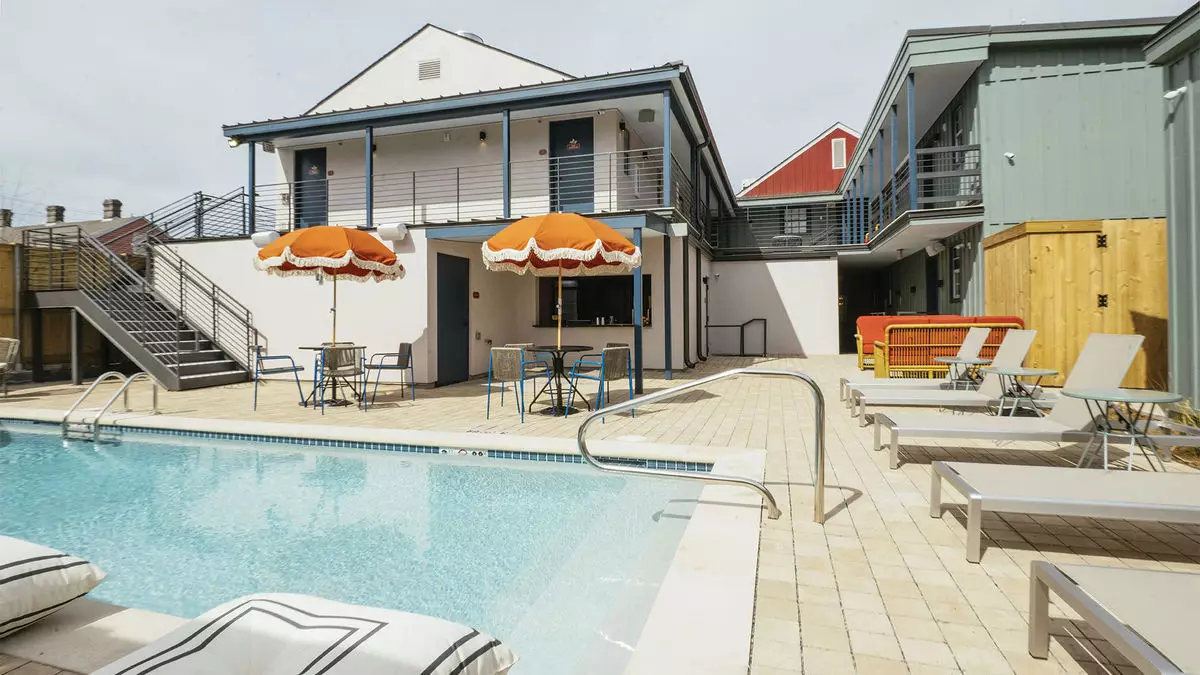New Orleans is a city that teems with vibrant history and cultural depth. Set against the backdrop of captivating stories of resilience, art, and social evolution, the Crescent City stands as a beacon of American music, innovation, and civil rights. Among its cherished landmarks, the Dew Drop Inn offers a compelling narrative that bridges its storied past with a hopeful future, making it a unique destination for both locals and visitors.
Established in 1939 amid the oppressive climate of segregation, the Dew Drop Inn began as a humble barbershop and restaurant. Initially, it served as a sanctuary where members of the Black community could gather and connect. At a time when few spaces existed for Black Americans to congregate, the Dew Drop Inn became a harbinger of community, offering a sense of belonging and togetherness. The visionary owner, Frank Painia, recognized the importance of this institution and sought to transform it into a multifaceted venue that celebrated Black artistry and culture.
Over the next decade, Painia’s foresight bore fruit as the Dew Drop Inn blossomed into a thriving entertainment complex. It became a significant stop on the famed “Chitlin’ Circuit,” a network of venues that allowed Black musicians to showcase their talents in a largely segregated society. This era witnessed legendary performers, including the likes of James Brown and Aretha Franklin, grace its stage, creating a legacy that intertwined with the very fabric of American music.
A Haven for Diversity and Coalition
One of the unique aspects of the Dew Drop Inn was its role as a refuge not only for musicians but also for the LGBTQ+ community. The establishment provided a rare platform for performers like Patsy Vidalia, a celebrated drag artist whose Halloween ball drew thousands, fostering an inclusive environment in a period marked by discrimination. This space was not merely a venue; it embodied a spirit of unity that transcended racial and sexual identities. Painia’s commitment to hospitality and equality brought together people from all walks of life, a notion that would eventually lead him to challenge the very system of segregation itself.
In a historic move, Painia took legal action against the city to desegregate the local bar scene. Their victory, however, was bittersweet. By the 1970s, changing tides in legislation coincided with Painia’s declining health, leading to the eventual closure of the live music venue. The hotel continued to operate until Hurricane Katrina devastated New Orleans in 2005, burying the Dew Drop Inn under piles of debris and memories.
In a remarkable comeback story, the Dew Drop Inn reemerged from its ruins, thanks to the vision of Curtis Doucette Jr., who acquired the property from Painia’s grandson. Under Doucette’s stewardship, the Inn was converted into a boutique hotel that retains its cultural essence while also welcoming a new generation of artists and performers. The careful blend of design elements honors the establishment’s rich history while providing contemporary comforts for guests.
Each room in the Dew Drop is artistically named after influential figures from both the Inn’s legacy and New Orleans’ broader tapestry of civil rights, such as A.P. Tureaud and Irma Thomas. Furthermore, the walls are adorned with imagery and artifacts that narrate the triumphs and tribulations of the city’s notable personalities. Doucette has also created a museum that replicates the original barbershop, allowing guests to immerse themselves in the insights of New Orleans’ past.
At the heart of the Dew Drop Inn is its dedication to live entertainment. Each Saturday, the venue hosts “Legends of the Dew Drop: Road to Rock & Roll,” a showcase that celebrates the contributions of the musical legends who once graced the same stage. Additionally, the space is designed to accommodate various events, from intimate gatherings to energetic performances featuring local musicians and comedians.
Culinary offerings at the Dew Drop Inn reflect the rich Creole traditions of New Orleans. The restaurant serves signature dishes like gumbo and red beans and rice, alongside classic American fare. Guests can savor a lavish brunch buffet while enjoying musical performances every Sunday. Furthermore, the bar features a selection of crafted cocktails, including the city’s iconic Sazerac, inviting patrons to unwind while immersing themselves in the vibrancy of the local scene.
The Dew Drop Inn stands as a testament to New Orleans’ enduring legacy and commitment to inclusiveness. With its storied history rooted deeply in the struggles and triumphs of marginalized communities, the Inn invites everyone to embrace its warm hospitality. Whether one is visiting for the vibrant Jazz & Heritage Festival or the lively Mardi Gras celebrations, the Dew Drop Inn remains a cornerstone of the Crescent City’s rich cultural ecosystem, where all are welcomed, and music, art, and history converge.


Leave a Reply